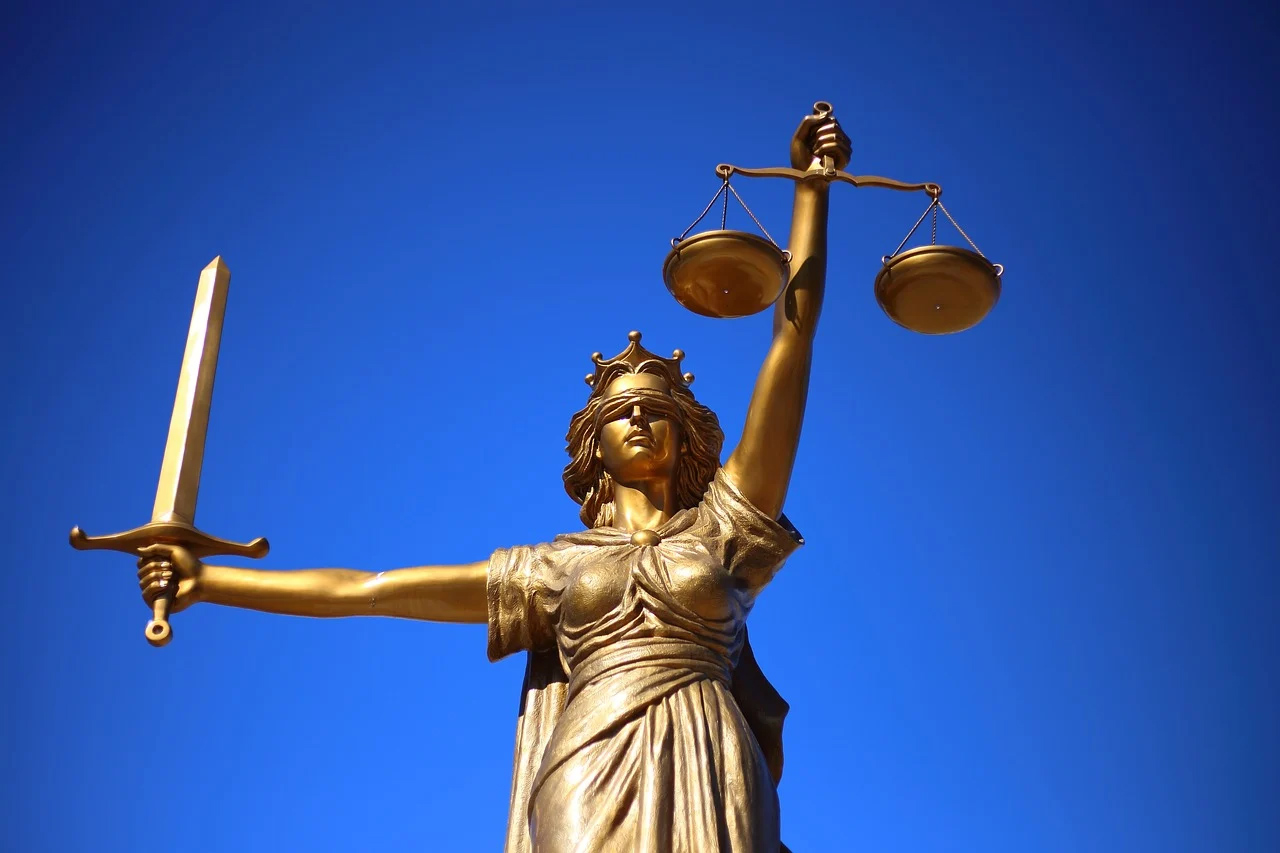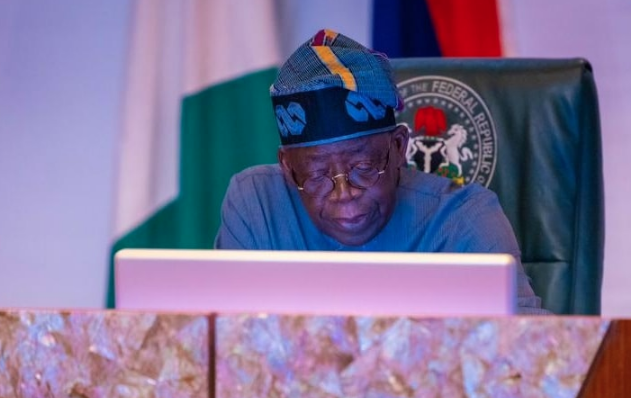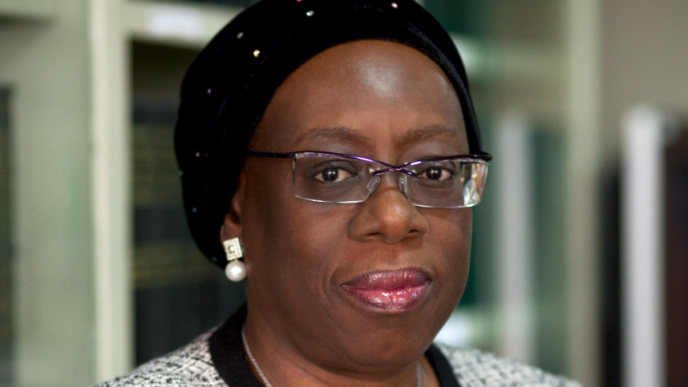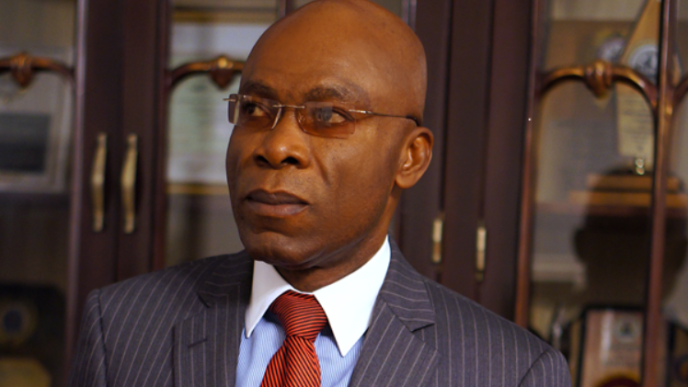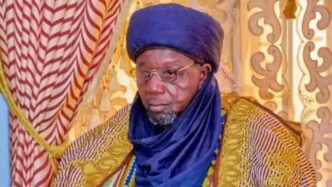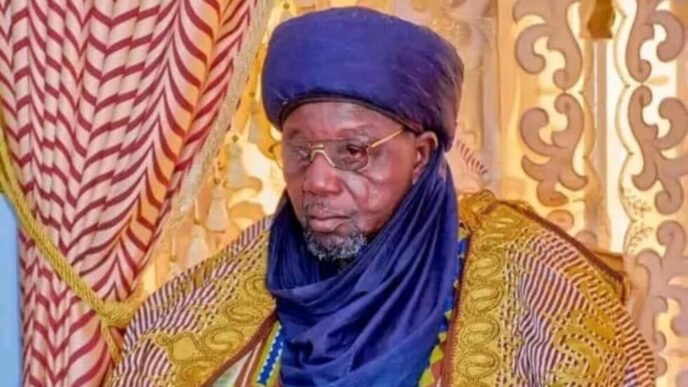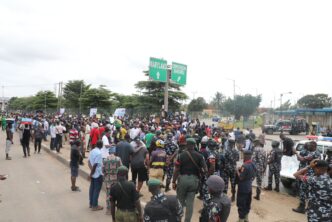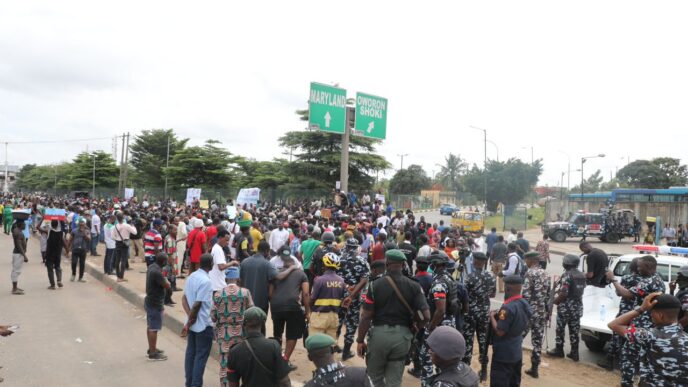BY BASIL ODILIM
The Economic and Financial Crimes Commission (EFCC) should have swiftly moved to arrest former Ogun State Governor Ibikunle Amosun after he shamelessly admitted to signing a dubious contract with Chinese investors. However, in typical fashion, the EFCC remains impotent, unable, or unwilling to take such actions.
This is because the EFCC was never truly established to serve justice but rather to protect powerful, corrupt politicians and criminal bankers while preying on the small fry in Nigeria’s vast ocean of corruption, like the so-called “yahoo boys.” This selective enforcement reveals the EFCC as nothing more than a toothless, dull watchdog, incapable of holding the true culprits accountable. Its existence perpetuates a system where the powerful remain untouchable, and the vulnerable are scapegoated, allowing the broader corruption that plagues the country to thrive.
This systemic corruption has made Nigeria ripe for exploitation by foreign entities, notably Chinese investors who, recognising the weaknesses in Nigeria’s governance, have embarked on a global spree to seize Nigerian assets. These actions not only humiliate the country on the international stage but also contribute to a growing criminality associated with Nigeria, inflicting irreparable reputational damage on a nation where lawlessness reigns supreme.
Advertisement
The long-term consequences of continuing down this road are dire: Nigeria risks becoming a pariah state where legitimate business becomes impossible, international relations are strained, and its citizens bear the brunt of the nation’s assets being sold off or seized to settle debts accrued through corrupt deals. This scenario will not only stifle economic growth but will also lead to widespread poverty and social unrest as the gap between the elite and the average Nigerian widens.
The judiciary, which should serve as the last bastion of justice, has instead been hijacked by those it should be holding accountable. The government, arguably the largest thief in the country, has strategically placed loyalists in key judicial positions, ensuring that any case brought against it is decided in its favour. These judges, far from upholding the rule of law, are now mere pawns in a grand scheme to protect and perpetuate corruption.
As a result, the government can brazenly expropriate private assets, with the assurance that any challenge will be nullified by a compromised judiciary. This is why none of my nine cases against the government during the administration of Muhammadu Buhari have made any progress. The implications are clear: Justice is dead in Nigeria, and without it, the nation’s moral and legal foundations are crumbling.
Advertisement
This shamelessness and thievery extend to Nigeria’s financial institutions, with the Central Bank of Nigeria (CBN) standing as a prime example. In a brazen act of corruption and deceit, the CBN opposed our registration of the “eNaira” at the United States Patent and Trademark Office (USPTO), claiming that “eNaira” is a sovereign asset of Nigeria and thus cannot be registered by anyone, including the CBN itself.
However, the hypocrisy of the CBN is glaring: before opposing our trademark, the CBN had secretly sought to register the eNaira for itself. Their claim that the eNaira is a sovereign asset is not only absurd but also demonstrably false, as the word “Naira” itself is not a sovereign asset of Nigeria, originating instead from a village in India. Despite these glaring inconsistencies and outright falsehoods, the USPTO accepted the CBN’s argument, revealing either a shocking level of gullibility or complicity on the part of an institution that should know better.
As a result of the CBN’s falsehoods, the USPTO disregarded our doctrine of territoriality rights—a principle that ensures trademarks are protected within specific geographic boundaries—setting a dangerous precedent that allows sovereign entities to bypass established legal frameworks through deceit and manipulation. This action not only undermines the integrity of the international trademark system but also threatens to erode the rule of law on a global scale, opening the door for further abuses by other state actors.
In response to this travesty, Mefona LLC has initiated a declaratory lawsuit against the CBN, the presidency, the attorney general, the trademark registry, and the national assembly. The goal of this lawsuit is not only to assert that “eNaira” is not a sovereign asset and is subject to trademark laws like any other term but also to expose and rectify the erroneous acceptance of the CBN’s fraudulent claims.
Advertisement
Central to this legal battle is the question of whether the CBN’s assertion to the USPTO on January 21, 2022—that the eNaira is a sovereign asset of Nigeria, backed by law, and therefore not registrable by anyone, including itself—was made in good faith or was unlawfully misleading, especially considering that the CBN had applied for and obtained registration of the same eNaira trademark on November 1, 2021.
This legal battle is not just about defending a trademark; it is a crucial fight to reclaim the integrity of Nigeria’s legal and financial systems and to hold accountable those who exploit and distort them for personal gain. If these corrupt practices are allowed to continue unchecked, Nigeria’s credibility on the global stage will be further eroded, undermining the fundamental trust needed for economic growth and foreign investment.
As long as these practices persist, Nigeria risks descending further into corruption and lawlessness, with the ultimate victims being the Nigerian people. They will find themselves in a country stripped of its assets, mired in corruption, and devoid of justice or opportunity—a tragic outcome for a nation that once held so much promise.
Basil Odilim Enwegbara can be contacted via [email protected]
Advertisement
Views expressed by contributors are strictly personal and not of TheCable.
